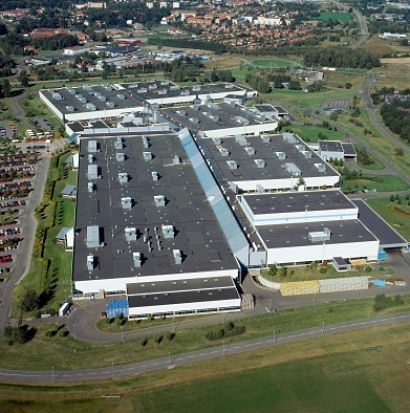
The company is aiming to invest 700 million Swedish Krona (SEK) to achieve this objective over the coming years and is committed to becoming a premium electric car company. It is pushing towards global sales consisting of 50 per cent fully electric cars by 2025, with the rest hybrids.
The Skövde operations have been part of the Volvo Cars story ever since the company’s founding in 1927. Adding e-motor production to the plant’s activities means the historic ground in Skövde will be a part of the company’s future as well.
Volvo Cars announced earlier this year that it is investing significantly in the in-house design and development of e-motors for the next generation of Volvo cars. With the planned investments in Skövde, it now takes the first steps towards in-house e-motor assembly and manufacturing.
In a first stage, the Skövde facility will assemble e-motors. At a later stage, the company intends to bring the full manufacturing process for e-motors in-house into a facility in Skövde.
“The very first Volvo from 1927 was powered by an engine built in Skövde” said Javier Varela, Senior Vice President of Industrial Operations and Quality. “The team is highly skilled and committed to delivering on the highest quality standards. So it is only fitting that they will be a part of our exciting future.”
Taking over the role of the internal combustion engine in car engineering, e-motors are a fundamental building block of electric cars, together with the battery and power electronics. The interplay between these three component areas is crucial in developing premium electric cars.
Bringing the development and production of e-motors in-house will allow Volvo Cars’ engineers to further optimise electric motors and the entire electric driveline in new Volvos. This approach will allow engineers to make further gains in terms of energy efficiency and overall performance.
Design and development of the company’s electric motors takes place in Gothenburg, Sweden, and Shanghai, China. Earlier this year, Volvo Cars opened a new electric motor lab in Shanghai, in addition to ongoing e-motor development in Gothenburg, and state-of-the-art battery labs in China and Sweden.
The remaining activities at the Skövde engine plant, focusing on the production of internal combustion engines, will be transferred to a separate subsidiary of Volvo Cars, named Powertrain Engineering Sweden (PES). PES is intended to be merged with Geely’s combustion engine operations, as announced earlier.
For additional information:

